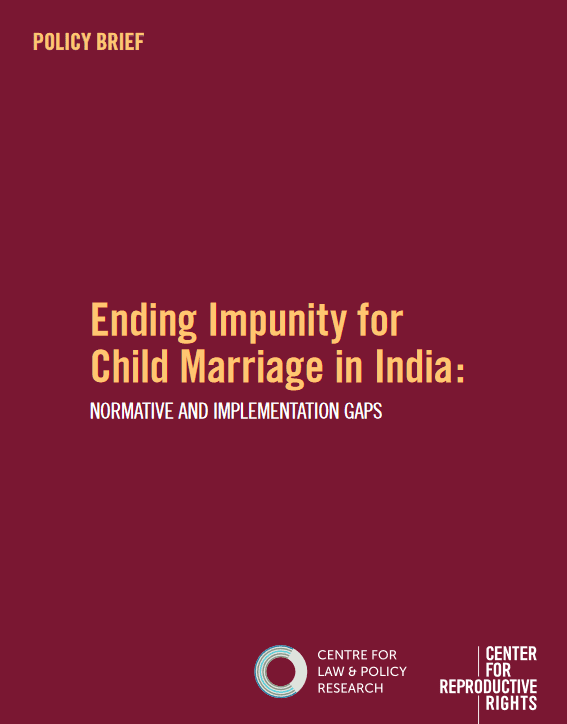Ending Impunity for Child Marriage in Nepal
Despite penal provisions criminalizing child marriage in Nepal, child marriage has been practiced for generations. Globally, Nepal has one of the highest rates of child marriage globally: 37% of Nepali women aged 20-24 years were first married by age 18, and 10% were married by age 15. The Center’s work in South Asia underscores the need to build understanding and recognition of child marriage as a human rights concern and a form of gender discrimination. Child marriage is a multi-dimensional issue and effective legal strategies are required to ensure accountability for crimes committed as a result of this practice.
The purpose of the policy brief, Ending Impunity for Child Marriage in Nepal: A Review of Normative and Implementation Gaps, is to inform policy makers, law enforcement officials, and human rights defenders, of the key legal gaps and inconsistencies that have undermined efforts to address child marriage in Nepal, particularly in light of the constitutional guarantees, national laws, and international human rights standards. This assessment highlights multiple challenges faced in the implementation of the existing affirmative laws and makes linkages to other causes of systemic discrimination in law and practice that contribute to impunity. It puts forward a set of concrete recommendations for addressing the gaps and challenges in order to promote access to justice for the victims of child marriage.

